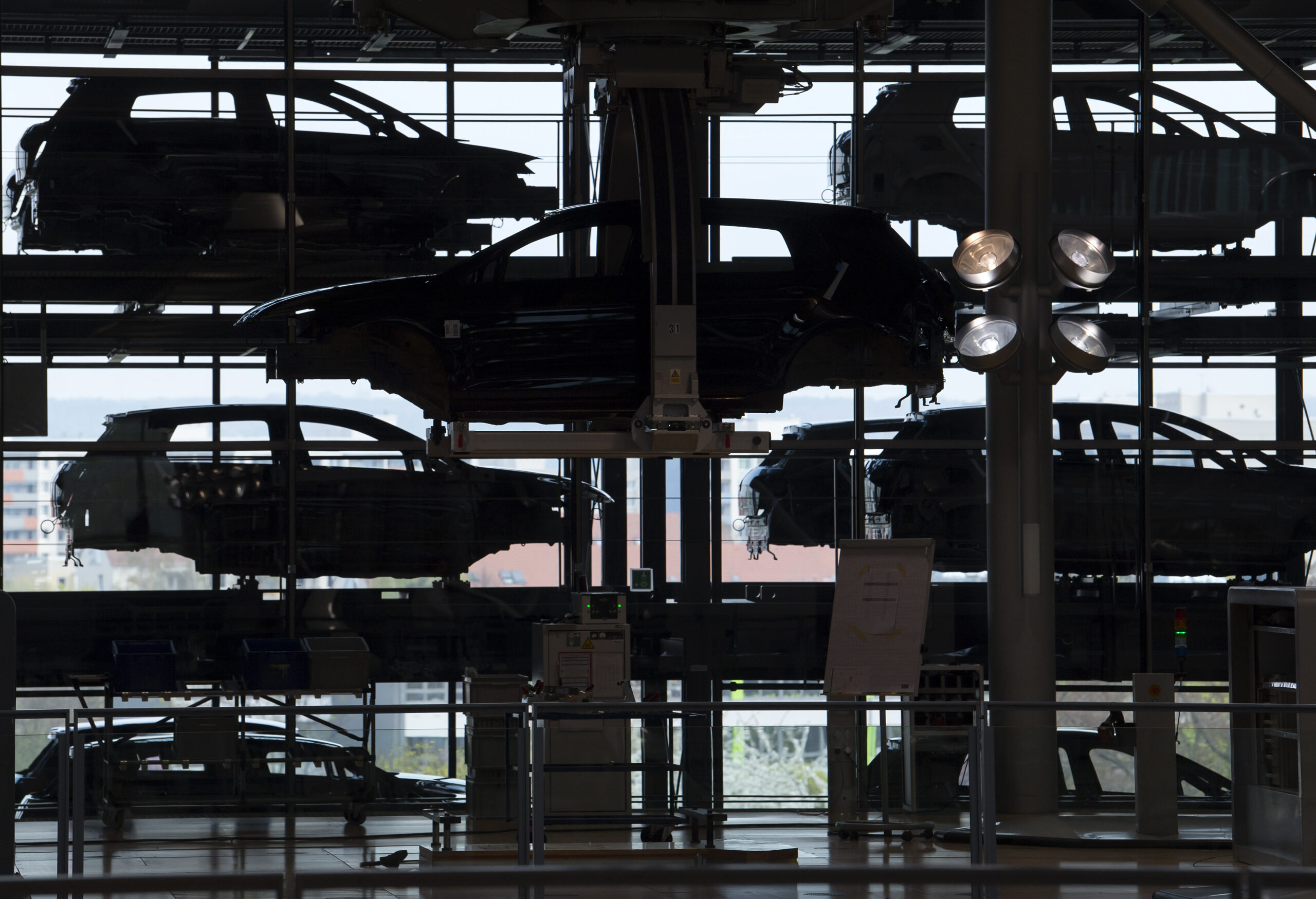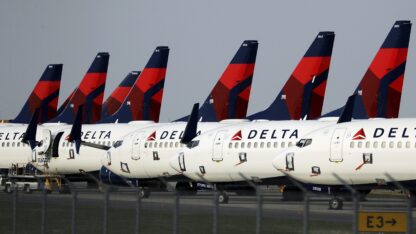German Business Leaders Worry About Tariff Impacts In The South

The German American Chamber of Commerce (GACC) of the Southern U.S. said tariffs on steel and possibly European cars would lead to higher prices for consumers.
Jens Meyer, file / Associated Press
German business leaders based in Atlanta said they’re concerned about President Donald Trump’s threat of tariffs on steel and possibly European cars.
The German American Chamber of Commerce (GACC) of the Southern U.S. said these tariffs would lead to higher prices for consumers.
“Approximately 25 percent of all steel is used in automotive manufacturing and 10% in machinery and equipment; both industries that German companies have heavily invested in the U.S. over the years,” said Stefanie Ziska, president of GACC South in a statement.
Southern Impact
The GACC said it could hurt auto plants in Georgia and other southern states.
“With plants in Alabama and South Carolina (Mercedes-Benz), Tennessee (VW) and South Carolina (BMW), German automotive manufacturers are creating skilled and high paying jobs,” the GACC statement continued. “And to no small part, the vehicles produced here in the U.S., are exported to Europe and Asia.”
Emory University associate professor of International Business and Finance Jeffrey Rosensweig said a trade war is a bad idea – especially for the South.
“We export over 400,000 German name plate cars out of the U.S., which brings money into the South as well as creates jobs. This is very, very dangerous for the South and for the world economy,” Rosensweig said. “There are no winners from this.”
He said the U.S. only produces about 10 percent of aluminum used in products made here. As manufacturers like Savannah-based Gulfstream, use more aluminum to build their planes is one example of a company it will need to raise prices of their planes.
German Automakers
Bernhard Mattes is president of the German Association of the Automotive Industry (VDA), which represents Daimler AG, BMW and other German automotive companies.
“About every other car made by our auto manufacturers in the U.S. is exported to Europe, Asia and around the world,” Mattes said.
Mattes said since 2013 German companies have increased production at U.S. locations by 180,000 units to 804,000 vehicles while exports from Germany to the U.S. has dropped by 25 percent.
The chamber said there is $291 billion of foreign direct investment from Germany in the United States. It estimates there are 4,700 German companies operating in the U.S. and it has helped create 672,000 American jobs.
AGCO
A Duluth-based agricultural equipment manufacturer said it was concerned about “overseas trading partners” responding with “trickle-down retaliatory tariffs.”
“The Administration’s decision to impose steel and aluminum tariffs will adversely impact farm equipment manufacturers by raising the cost of agricultural equipment made in the U.S. and necessitating price increases for our products,” said AGCO spokesperson Kelli Cook. “This would place the U.S. farm equipment industry, which supports thousands of U.S. jobs, at a competitive disadvantage. The steel and aluminum tariffs will also put additional pressure on U.S. farmers who are struggling with challenging economics.”








